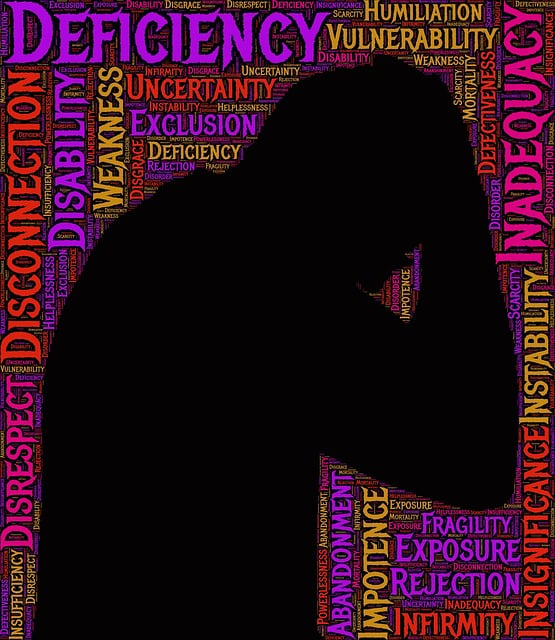Mental health advocacy emphasizes early intervention through therapy, notably grief counseling, to support young children's emotional well-being. By raising awareness and implementing empathy-building strategies, advocates create an environment where kids feel understood and equipped to manage challenges, preventing mental health issues. Grief counseling is vital for processing complex emotions post-loss or trauma, fostering emotional healing and healthy mental growth. Strategic integration of therapy programs in schools, coupled with mood management techniques, equips students with essential skills for coping with personal losses and building resilience. Advocacy initiatives, like increased access to therapy and cultural sensitivity, have been transformative, improving mental well-being and setting children on a path to better emotional health.
Mental health advocacy is a vital pillar supporting the well-being of young children, ensuring they receive the care they need to flourish. This article delves into the crucial role of mental health initiatives, focusing on therapy programs and grief counseling tailored for early childhood development. We explore successful strategies for implementation in schools and communities, highlighting their profound impact. By understanding these advocacy efforts, we can foster healthier, more resilient young minds through accessible and effective therapy for children grappling with emotional challenges, including grief.
- Understanding Mental Health Advocacy: Why It Matters for Young Children
- The Role of Grief Counseling in Early Childhood Development
- Effective Strategies for Implementing Therapy Programs in Schools and Communities
- Success Stories: Real-Life Impact of Mental Health Advocacy Initiatives
Understanding Mental Health Advocacy: Why It Matters for Young Children

Mental health advocacy plays a pivotal role in ensuring that young children receive the support and care they need for their emotional well-being. Understanding mental health advocacy means recognizing the importance of early intervention, which can significantly shape a child’s future. Many issues affecting mental health manifest during childhood, from anxiety and depression to trauma resulting from loss or challenging life events. Therapy for young children, including grief counseling, is a crucial component of advocacy as it provides a safe space for them to express their feelings, develop coping mechanisms, and build inner strength.
By fostering public awareness campaigns and implementing empathy-building strategies, mental health advocates create an environment where children feel understood and supported. This proactive approach not only helps in managing existing conditions but also prevents the onset of mental health issues by equipping young minds with tools to navigate life’s challenges. It is through these efforts that we can ensure a brighter, healthier future for our children.
The Role of Grief Counseling in Early Childhood Development

Grief counseling plays a pivotal role in early childhood development, offering therapy for young children who have experienced loss or trauma. This specialized support is crucial for helping kids navigate complex emotions and fostering their emotional healing processes. By providing a safe space to express feelings, grief counseling helps young minds process bereavement or traumatic events, promoting healthy mental growth.
Early interventions through grief counseling can significantly impact a child’s future psychological well-being. It aids in the development of essential social skills training, enabling children to form meaningful connections and communicate effectively. Moreover, addressing emotional needs at this stage contributes to effective risk management planning for mental health professionals, ensuring that children have the tools to cope with challenges as they grow older.
Effective Strategies for Implementing Therapy Programs in Schools and Communities

Implementing therapy programs within schools and communities requires a thoughtful approach to ensure their effectiveness. One key strategy is integrating emotional intelligence into the curriculum, teaching young children essential skills for understanding and managing their emotions. This lays a solid foundation for mental well-being, especially when coupled with targeted interventions like grief counseling. Such programs can help students cope with personal losses and build resilience.
Additionally, schools and communities should promote mood management techniques through workshops and group activities. Teaching mindfulness, relaxation strategies, and problem-solving skills empowers children to navigate stress and anxiety effectively. By combining these approaches with the instruction of mind over matter principles, where individuals are encouraged to reframe negative thoughts and foster a positive mindset, therapists can create a supportive environment that nurtures mental health and prepares young people for lifelong well-being.
Success Stories: Real-Life Impact of Mental Health Advocacy Initiatives

Mental health advocacy initiatives have proven to be life-changing for many individuals and families. One such example is the increased access to therapy for young children, which has shown remarkable results in early intervention. By providing grief counseling to those dealing with loss at a young age, these programs help children process their emotions and develop healthy coping mechanisms. This not only improves their mental well-being but also sets them on a path to better emotional health as they grow up.
Additionally, cultural sensitivity in mental healthcare practice has been a game-changer, especially within diverse communities. Self-care practices and healthcare provider cultural competency training have empowered both professionals and clients. These initiatives ensure that everyone involved receives the support tailored to their unique needs and backgrounds, fostering an environment where mental health services are accessible, effective, and culturally competent.
Mental health advocacy initiatives, focusing on therapy for young children and integrating grief counseling, have proven to be transformative. These programs, successfully implemented in schools and communities, not only support early childhood development but also offer lasting impact. By recognizing the importance of mental well-being at a young age, we can create a more resilient and healthy future for our society. Initiatives highlighted in this article serve as compelling success stories, emphasizing the positive outcomes of dedicated efforts to address mental health concerns in children.












